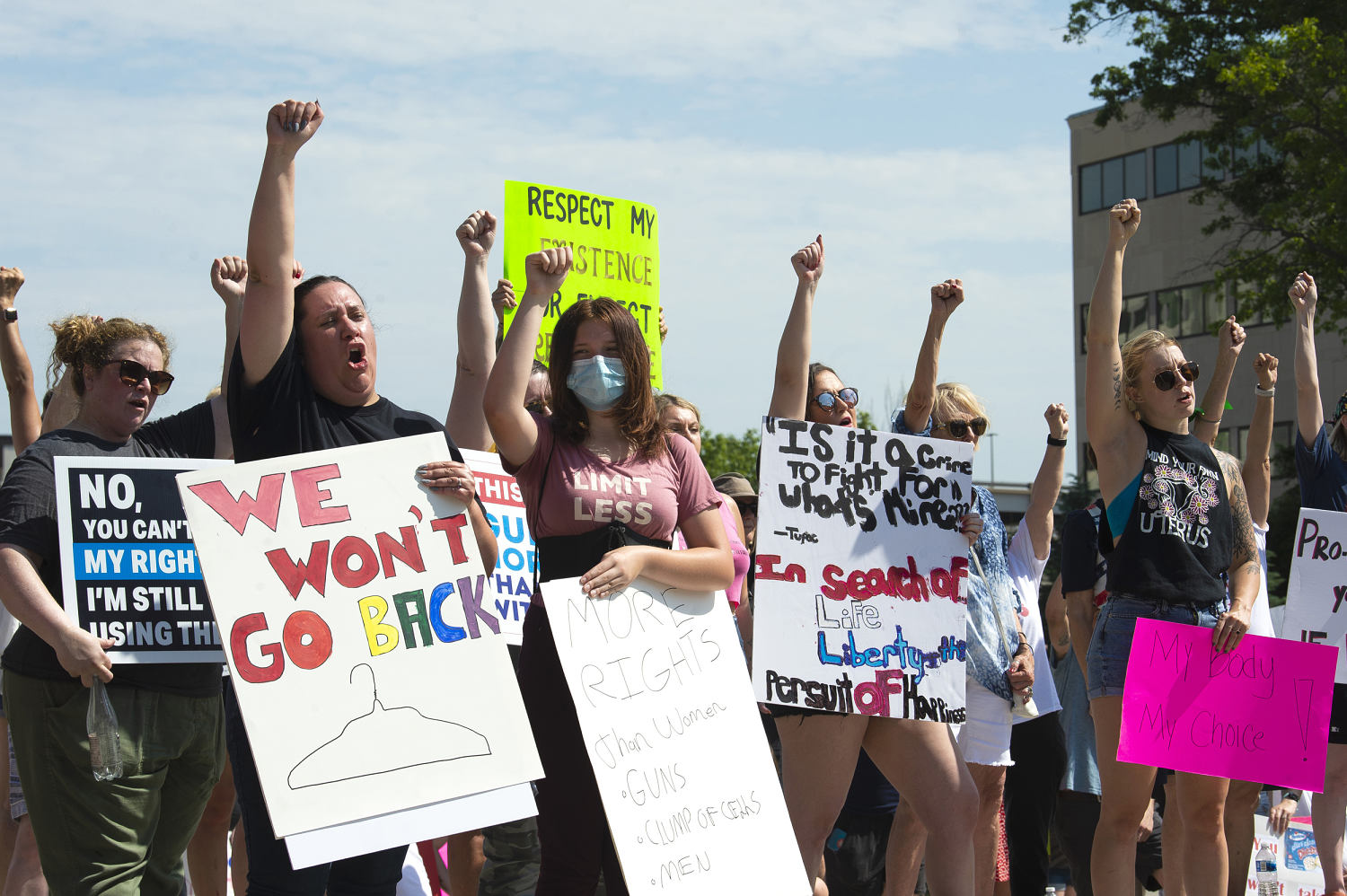
The Nebraska Supreme Court ruled Friday that dueling constitutional amendments can appear on state ballots this fall.
One of the ballot measures, known as “Protect the Right to Abortion,” would amend the state’s Constitution and stipulate that “all persons shall have a fundamental right to abortion until fetal viability, or when needed to protect the life or health of the pregnant patient.”
The other, called “Protect Women and Children,” would ban abortions in the second and third trimesters, except in the case of a medical emergency or when the pregnancy is a result of sexual assault or incest.
Nebraska law prohibits abortion after 12 weeks of pregnancy, with exceptions for rape, incest and saving the mother’s life. The pro-abortion rights measure would effectively undo that law, while the other measure would essentially codify it in the state’s Constitution.
Abortion rights opponents had argued in a pair of lawsuits that the amendment to expand abortion rights violated a state rule that says a ballot proposal must only address one subject.
The state Supreme Court ruled Friday that the measure was not in violation of the single-subject rule.
The Nebraska secretary of state will host hearings in October on the two ballot measures, as well as four other unrelated ones, the state’s office said Friday.
Matt Heffron, a senior counsel for a firm that argued against allowing the abortion rights initiative to stay on the ballot, slammed the high court’s ruling.
“We are deeply concerned that the Nebraska Supreme Court has allowed this intentionally deceptive initiative to go before Nebraskans for a confusing vote,” said Heffron, who works at the Chicago-based Thomas More Society, an organization that backs anti-abortion rights positions.
Allie Berry, the campaign manager for the group Protect Our Rights, called the court’s decision “a victory for all Nebraskans.” The group backs the abortion rights initiative.
“The competing ballot initiative does nothing to help these patients, making the current ban permanent and leaving the door open for a total abortion ban in the state. A vote for Protect Our Rights will end the current harmful abortion ban and stop political interference in the future,” Berry said.
Nebraska’s branch of the American Civil Liberties Union celebrated the court’s ruling, saying in a post on X that Nebraskans would be able to “vote to end our current ban, make sure Nebraskans can get the care they need, and ensure that decisions about pregnancy and abortion rest with patients — not politicians.”
Nebraska is one of 10 states where constitutional amendments that would protect or expand abortion rights are set to appear on ballots this fall. Many of those states lean conservative, including Montana, South Dakota, Missouri and Florida. Colorado, New York and Maryland are the liberal-leaning states with abortion ballot measures. Arizona and Nevada — two key battleground states in the presidential election — also have abortion ballot initiatives.
Abortion rights advocates have consistently scored wins when such initiatives are put to a vote, even in red-leaning states like Ohio, Kansas and Kentucky.
Ohio voters last year added the right to abortion care access to the state’s Constitution. In 2022, Kentucky voters rejected a ballot proposal that would have changed the state Constitution to say it does not protect the right to abortion. That same year, Kansas voters cast ballots against a proposed amendment which would have removed language guaranteeing abortion rights in the state.





